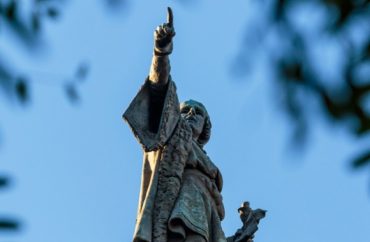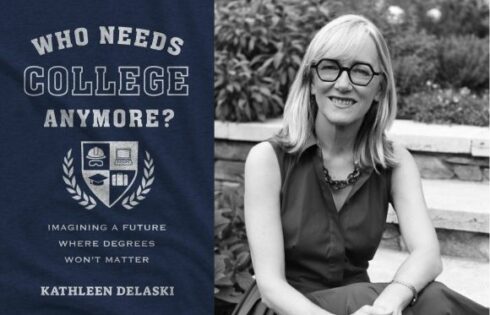
You would never believe it if you lived on an American campus or in a politically progressive town, but a majority of Americans still believe in celebrating Columbus Day.
According to a Marist Poll from last month, 57 percent say celebrating the explorer is a “good idea,” while only 29 percent don’t like the holiday. Results also show a majority view Columbus “favorably” or “very favorably,” while half that figure view him negatively.
One of the more recent examples of the academy acting in the “minority interest,” so to speak, is Harvard, where “Indigenous People’s Day” will be celebrated alongside Columbus Day. The city of Cambridge, however, went further by completely ditching the latter in favor of the former. Cambridge councillor Nadeem A. Mazen said the town will not celebrate “someone who was a tyrant, and was a torturer, and was a destroyer of Indigenous people.”
At the University of Wisconsin Oshkosh, an event will be held (also called “Indigenous People’s Day”) “in place of Columbus Day to promote Native American culture and commemorate the history of their people.” UW Oshkosh Coordinator of American Indian Student Services Dennis Zack said the event “changes a celebration of colonialism into an opportunity to reveal historical truths”:
“In reality, the arrival of Christopher Columbus in 1492 created colonialism, enslavement and the forced removals of the tribes that followed the ‘discovery of America.’”
Much of the credit for the recent anti-Columbus sentiment should go to the late Howard Zinn, a historian and former professor of political science at Boston University. Zinn, a socialist, retired from BU in 1988 and died in January 2010, but NewsBusters’ Matt Philbin noted in a recent editorial that in the past five years, Zinn and his work have been cited 31 times by The New York Times, 52 times by The Washington Post, and over 180 times by the liberal Huffington Post. …
[However], the survey also shows that a majority of Americans disregard Zinn’s use of “presentism” in judgment of Columbus. Presentism applies modern ethics and standards to behavior in other centuries. Seventy-six percent of Americans believe that Columbus and other historical figures should be judged by the standards of conduct of their own lifetimes, as opposed to modern standards, the Marist Poll found.
“The polling shows pretty clearly history has to be viewed with a contextual lens,” said Andrew Walther, vice president of communications for the Knights of Columbus, speaking to LifeZette on Thursday. “We need to be cognizant of the world in which Columbus lived.” …
“The Knights of Columbus joins the vast majority of Americans in celebrating Columbus Day,” said Carl Anderson, CEO of Knights of Columbus, in a statement emailed to LifeZette. “He was a man ahead of his time, who brought two worlds together and began the process that led to the founding of this country. It is a testament to Americans’ commitment to a fair reading of history that the explorer’s popularity has endured despite the unfair and hateful attacks by British propagandists, the Ku Klux Klan, and revisionist academics.”
Colleges have battled majority opinion on this matter for years. In 2015 for example, students at Brown University held a “die-in” to protest Columbus Day; in 2012 Arizona State students voted to change the holiday to “Indigenous People’s Day”; and, earlier this year Pepperdine University removed a statue of Columbus because it was “a celebration of genocide and racial oppression.”
MORE: Seattle school board will observe ‘Indigenous Peoples’ Day’ on Columbus Day
MORE: Canadian school district ditches Shakespeare for ‘indigenous literature course’
IMAGE: Shutterstock
Like The College Fix on Facebook / Follow us on Twitter






Please join the conversation about our stories on Facebook, Twitter, Instagram, Reddit, MeWe, Rumble, Gab, Minds and Gettr.